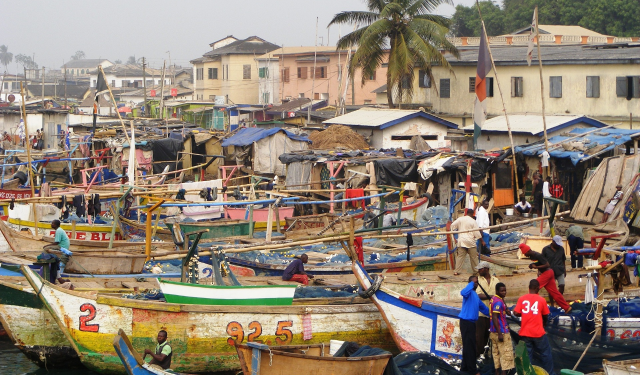Ghana pledges full transparency in its fishing industry – Ghana has taken a major step towards sustainable fisheries management in the West African sub-region by committing to 100 per cent transparency in industrial fishing through an Electronic Monitoring System (EMS) effective 2023. This was disclosed by Madam Hawa Koomson, the Minister for Fisheries and Aquaculture Development, during her participation in the Eighth Edition of Our Ocean Conference held in Panama City, Panama. The EMS will utilize video cameras, remote sensors, Global Positioning Systems (GPS), and hard drives installed on fishing boats to monitor fishing activities and collect important data including catch, quantity, and labour activities. This data will help improve oversight and management of Ghana’s seas, and enable the country to adhere to international regulations governing ocean and marine conservation.
In addition, the EMS seeks to discourage, counter, and eradicate illegal, unreported, and unregulated fishing in Ghana, while providing employment opportunities for Ghanaians within the fisheries sector. The implementation of the EMS will position Ghana as a leader in fisheries management and send a message to the world of its commitment to the conservation of its fisheries.
Fisheries are a vital part of Ghana’s economy, with an estimated 10% of the population engaged in the sector. Ghana’s marine fisheries are facing significant challenges, including overfishing, illegal fishing, and climate change. The implementation of the EMS is expected to improve the management of Ghana’s fisheries and ensure their long-term sustainability. The government of Ghana has been implementing various measures to address these challenges, including the development of policies and regulations aimed at promoting sustainable fisheries management.
In recent years, Ghana has also made progress in the fight against illegal, unreported, and unregulated fishing. In 2019, Ghana became the first country in West Africa to be awarded a yellow card by the European Union for not doing enough to combat illegal fishing. However, after taking steps to address the issues, Ghana was able to have the yellow card lifted in 2020. The implementation of the EMS is expected to further strengthen Ghana’s efforts in this regard and enable the country to better manage its fisheries for the benefit of both its economy and the environment.
Ghana pledges full transparency in its fishing industry









